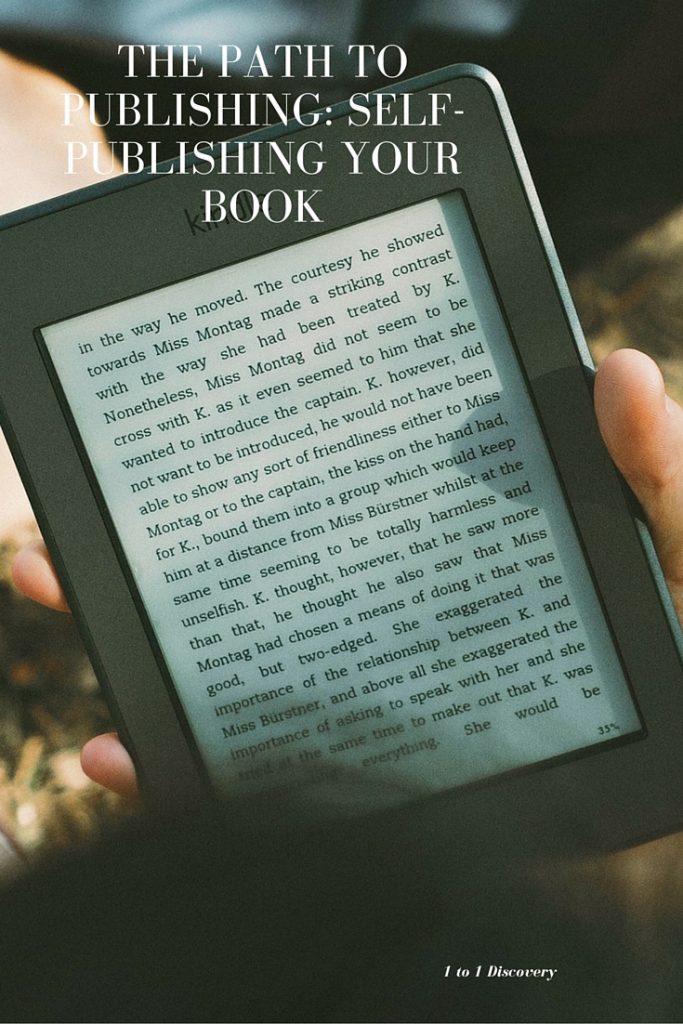
 Last week I wrote about my experiences working with a publisher for The Enthusiastic Networker. Today I want to discuss self-publishing and how that worked for my fiction series, The Warlock Case Files.
Last week I wrote about my experiences working with a publisher for The Enthusiastic Networker. Today I want to discuss self-publishing and how that worked for my fiction series, The Warlock Case Files.
The biggest advantage to working with a publisher was having someone else project manage all the stages. As a self-published author, all that falls on you. Beyond the writing, there are several other steps you’ll have to handle yourself. None of them are terribly difficult, but you’ll have to carve out time for them.
1. Editing your book
2. Designing a professional cover
3. Laying out the book’s interior for Print on Demand
4. Formatting your book for digital distribution
5. Uploading your book to the various distributors and book sales sites
6. Applying for copyright
Technically, you can do any of these yourself, but all the decisions you make need to be about looking professional.
I recommend hiring an editor. Even if you are a good editor, you can’t edit your own work. Trust me. I am a trained editor, and another set of eyes always finds things I missed. If you write clean drafts, you can probably get away with a proofread. If you tend to make mistakes, like inconsistent spelling of character names, or make goofs like forgetting that a home was two stories in a couple of scenes (yes, speaking from experience here), you’ll want both a copy edit and a proofread. There are plenty of resources out there to explain the difference between the two.
What about a developmental edit, which you’ll see offered on some editing sites? Kris Rusch has plenty to say on the subject, and I’ll let her take that question.
Other than editing, everything else can be handled yourself, with caveats.
If you are going to design your own cover, then take some classes so you know what you are doing. I hired a cover designer for my first three books, and then, for lots of reasons, I decided to learn how to design my own. I discovered it wasn’t nearly as difficult as I had feared, and I’m in the process of doing a complete rebrand of all my books with new covers. If you don’t want to take the time to learn how to do it well, then by all means hire someone.
I’ve always hired someone to do my Print on Demand layout. Technically, I know how to do it (I think), but I’ve found an excellent company, BB eBooks, that does a good job for a reasonable price, and I’ve been letting them do it. I might try it once, just to see what it’s like.
The same with ebook formatting. I’ve done it, and I know how to do it, but I’ve found it just a better use of my time to let BB eBooks do it for me. I use Smashwords as my distributor to all ebookstores except for Amazon, and BB eBooks makes sure my book passes their process.
Okay. So project managing all those steps and hiring people is the, in my opinion, the biggest drawback to self-publishing. Then why do it?
Simple. Time, control and money.
Time is a big one. For most authors, especially new ones, there can be a delay of years between the writing of a book and its publication. First an author has to go through the lottery of finding an agent and/or publisher. (No, it’s not a literal lottery, but I’ve been told the odds are close.) Assuming you can find a publisher, there’s often at least a 12-18 month delay before the book is published.
That’s a long time to wait! I’ve been publishing about one book a year since 2011, and I’d like to increase that speed. Self publishing in the only way I’ll be able to do that.
 Control? What do I mean by that? Publishing contracts have been turning into rights grabs for a number of years now. There are some very bad contracts out there which, if signed, mean an author gives up most of their control over their book(s). Lots of people, Kris Rusch among them, are advising against traditional publishing because of how much control authors are being asked to give up. Why do you want that control? Isn’t it better to let someone else handle everything? Well, that leads to my final reason for wanting to self publish. Money
Control? What do I mean by that? Publishing contracts have been turning into rights grabs for a number of years now. There are some very bad contracts out there which, if signed, mean an author gives up most of their control over their book(s). Lots of people, Kris Rusch among them, are advising against traditional publishing because of how much control authors are being asked to give up. Why do you want that control? Isn’t it better to let someone else handle everything? Well, that leads to my final reason for wanting to self publish. Money
What about money? Earlier I mentioned a lot of things you need to pay for. So how is self-publishing good for the money?
Realize that self-publishing isn’t a sprint. It’s a marathon. Because you control the book, you control where it’s published, meaning it never needs to go out of print. Traditionally published books often have a limited shelf-life. That’s why the initial promotion is so furious. If a book doesn’t sell well in the first couple of months, it’s history.
Not so for self-published books. They can be in print (or electrons) forever. Sometimes it just takes time for a book to find its audience, and when it does, it can sell very well. Here’s where the royalty differences are huge.
I receive basically 70% of the sales price of my books. I say basically, because sales at places other than Amazon are either slightly higher or lower, but 70% is a pretty good number to work with. Royalty rates vary wildly for publishing houses, but overall they are pretty bad. Also, many publishing companies don’t price books well. The big publishers tend to overprice their books and lots of small publishers tend to underprice their ebooks. If you have the control, you can figure out the sweet spot for all your books to maximize your revenue. If the sweet spot changes over time, and they do, you can adjust because you have control, and your books are never unavailable.
Considering that, paying for editing, formatting and maybe a cover is small potatoes. Think like a business person. Those are fixed costs. Once you’ve sold enough to cover them, everything else is profit. With a publisher, you are effectively paying those fixed costs forever with that low royalty rate.
See how it all works? I’m not sorry I worked with a publisher for Enthusiastic Networker. But for my fiction? Self-published all the way!
I hope that answered a lot of questions you might have had. Have more questions? No problem. Feel free to ask for clarification of any points in the comments.
If you’d like some coaching on how to manage the entire process, contact me, and we can set something up.
Greedy hands image credit via Flickr user Liz West under a Creative Commons license.